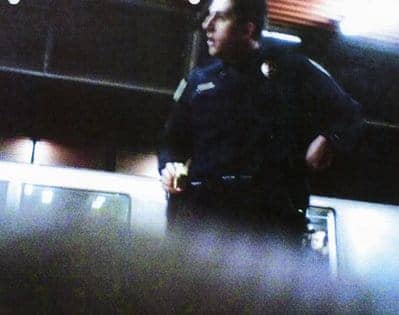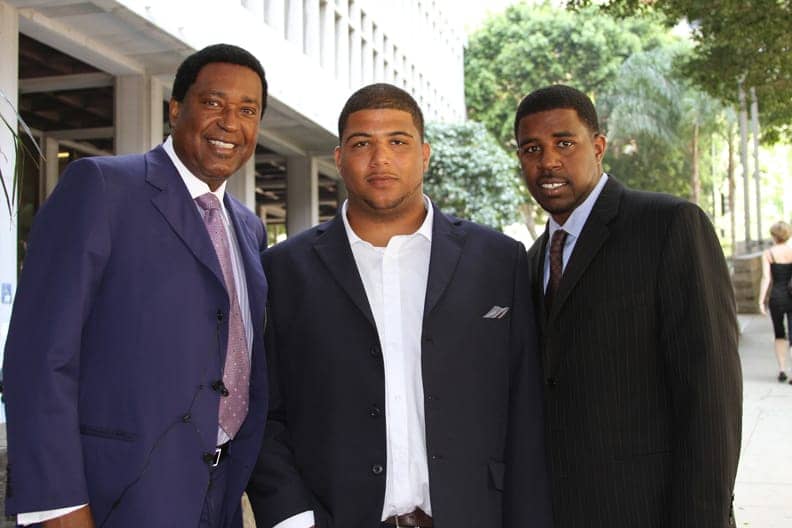A unanimous decision by five judges of the UK supreme court in favour of the appellants in HJ (Iran) and HT (Cameroon) v Secretary of State for the Home Department [2010] UKSC 31 represents a milestone in legal history. It secures the rights of LGBT people in need of protection from persecution, and will bring to an end years of discriminatory policy by the immigration services.
guardian.co.uk, Wednesday 7 July 2010
To compel a homosexual person to pretend that their sexuality does not exist, or that the behaviour by which it manifests itself can be suppressed, is to deny him his fundamental right to be who he is.
reasonable tolerability' test applied by the Court of Appeal is contrary to the Convention and should not be followed in the future'
HJ (Iran) and HT (Cameroon) v SSHD [2010] UKSC 31 On Appeal from: [2009J EWCA Civ 172
Supreme Court Press Summary 7 July 2010
Download the full judgement: HJ (Iran) (FC) (Appellant) v SSHD
Justices: Lord Hope (Deputy President), Lord Rodger, Lord Walker, Lord Collins, Sir John Dyson SCJ
Background to the application
HJ and HT are homosexual men - from Iran and Cameroon, respectively - who seek asylum in the United Kingdom on the basis that they would face the risk of persecution on grounds of sexual orientation if returned to their home countries.
In both Iran and Cameroon it is a criminal offence punishable by, inter alia, imprisonment and, in the case of Iran, by the death penalty, for consenting adults to engage in homosexual acts.
The Convention relating to the Status of Refugees, as applied by the 1967 Protocol ("the Convention"), provides that members of a particular social group, which can include groups defined by common sexual orientation, are entitled to asylum in States that are parties to the Convention if they can establish that they would face a well-founded fear of persecution if returned to their home country.
The Court of Appeal found that, if returned to their respective home countries, HJ and HT would conceal their sexual orientation in order to avoid the risk of being persecuted. As HJ and HT would hide their sexuality they would not come to the attention of the State authorities and so would not be at risk of persecution. Accordingly, neither party had a 'well-founded fear of persecution' that entitled him to protection under the Convention: it was permissible for a State party to the Convention to refuse asylum to a homosexual person who, if returned to their home country, would deny their identity and conceal their sexuality in order to avoid being persecuted, provided that the homosexual person's situation could be regarded as 'reasonably tolerable'. Only if the hardship which would be suffered was deemed to exceed this threshold would the applicant be entitled to protection under the Convention.
The Appellant appealed to the Supreme Court, contending that the 'reasonable tolerability' test espoused by the Court of Appeal was incompatible with the Convention.
Judgment
The Supreme Court unanimously allows the appeal holding that the 'reasonable tolerability' test applied by the Court of Appeal is contrary to the Convention and should not be followed in the future. H] and HT's cases are remitted for reconsideration in light of the detailed guidance provided f:y the Supreme Court.
Reasons for the judgment
There is no dispute that homosexuals are protected by the Convention, membership of the relevant social group being defined by the immutable characteristic of its members' sexuality [paras [6] and [10] per Lord Hope and para [42] per Lord Rodger].
To compel a homosexual person to pretend that their sexuality does not exist, or that the behaviour by which it manifests itself can be suppressed, is to deny him his fundamental right to be who he is. Homosexuals are as much entitled to freedom of association with others of the same sexual orientation, and to freedom of self-expression in matters that affect their sexuality, as people who are straight [paras [11] and [14] per Lord Hope and para [78] per Lord Rodger].
The Convention confers the right to asylum in order to prevent an individual suffering persecution, which has been interpreted to mean treatment such as death, torture or imprisonment. Persecution must be either sponsored or condoned by the home country in order to implicate the Convention [paras [12] and [13] per Lord Hope].
Simple discriminatory treatment on grounds of sexual orientation does not give rise to protection under the Convention. Nor does the risk of family or societal disapproval, even trenchantly expressed [paras [13], [15] and [22] per Lord Hope and para [61] per Lord Rodger].
One of the fundamental purposes of the Convention was to counteract discrimination and the Convention does not permit, or indeed envisage, applicants being returned to their home country 'on condition' that they take steps to avoid offending their persecutors. Persecution does not cease to be persecution for the purposes of the Convention because those persecuted can eliminate the harm by taking avoiding action [paras [14] and [26] per Lord Hope and paras [52]-[53] and [65] per Lord Rodger].
The 'reasonable tolerability' test applied by the Court of Appeal must accordingly be rejected [para [29] per Lord Hope and paras [50], [75] and [81] per Lord Rodger].
There may be cases where the fear of persecution is not the only reason that an applicant would hide his sexual orientation, for instance, he may also be concerned about the adverse reaction of family, friends or colleagues. In such cases, the applicant will be entitled to protection if the fear of persecution can be said to be a material reason for the concealment [paras [62], [67] and [82] per Lord Rodger].
Lord Rodger (with whom Lords Walker and Collins and Sir John Dyson SCJ expressly agreed), at para [82] and Lord Hope, at para [35], provided detailed guidance in respect of the test to be applied by the lower tribunals and courts in determining claims for asylum protection based on sexual orientation.
Note
This summary is provided to assist in understanding the Court's decision. It does not form part of the reasons for the decision. The full judgment of the Court is the only authoritative document. Judgments are public documents and are available at: www.supremecourt.gov.uk!decided-cases/index.html





















